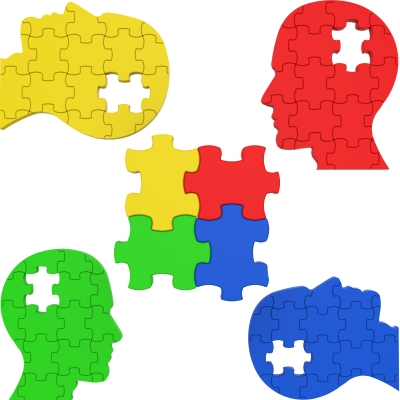
As my interest in critical thinking has grown through the years, I have accumulated lots of notes on avoiding thinking errors. I am now convinced that using critical thinking (or what can be called lessons learned) leads to many sound decisions. As I wrote in my last post, I try to avoid thinking biases or errors as much as possible. Here are three new biases:
Action bias [1]: it is better to do something than doing nothing; this is a big mistake. For example, research showed that penalty kicks in soccer are usually 1/3 to the left, 1/3 to the right, and 1/3 to the middle. The goalies, however, usually dive either to the left or to the right 50% of the time. Amazingly, It is embarrassing for the goalies to be in the middle without interfering.
Another example is that when experienced officers (vs. new officers) were deployed in a riot, less unrest happened due to the experienced officers’ avoidance of the action bias. Less experienced officers felt more compelled to take action with sometimes negative consequences. When I was teenager, this bias led me to make a lot of mistakes by opening my mouth and getting into repeated trouble with my biology teacher who was a textbook example of incompetence. Instead of trying to study as a normal student and to make up for his inability to explain things, I made sure to let him know that he was incompetent. This was a big mistake. I regret these days. I paid dearly for this bias by being suspended several times, by going to the principal twice, and by his asking for my parents to have a meeting with him. I will never do that again.
Black swan bias [1]: This bias tries to find an explanation for everything and to make predictions. This is called the black swan bias. The presence of a black swan (seen for the first time in 1790 in Australia) and the possibility of seeing one was described by Nassim Nicholas Taleb in his book [2]. Taleb argues that large events in our world are random and that trying to explain them and even worse to predict them in a logical way is not productive. He argues that on Oct. 19, 1987, stock markets around the world crashed, shedding a huge value in a very short time. The crash began in Hong Kong and spread west to Europe, hitting the United States after other markets had already declined by a significant margin. The Dow Jones Industrial Average (DJIA) dropped by 508 points to 1,738.74 around 23%. Some speculations on the cause of the decline point to program trading, overvaluation, illiquidity, and market psychology– who knows! This unthinkable event is an example of how something can affect our life and career without our ability to predict it. The wisdom of the black swan bias is to accept the occurrence of these events and discoveries—but try to capitalize on them when you see them. Spending a lot of time trying to predict a black swan event is counterproductive. After reading the book, I am now more conservative in my investing strategy, and I don’t anticipate the ups and down of the market.

Mother in-law dilemma bias: This dilemma usually happens when a new baby comes to the family. The mother in-law wanted very keenly to take care of her granddaughter, but she is afraid to impose on her daughter-in-law. The wife wanted the help from her mother in-law, but she is afraid of taxing her mother-in-law because of the amount of work needed to take care of her daughter. Both the mother-in-law and daughter-in-law wanted the same thing, but both were afraid to talk to each other. This effect is a very common error when you want something, and you are very worried about how people will perceive you. I find this true when people are afraid of imposing or interfering in the privacy of their loved ones and friends. After all, you need only to ask! I am one of the people who is never afraid to ask a question even if I had worried that I would look stupid. I discovered that people in general are very open to questions as long as you are polite.
This blog is published every week on Saturday before 10:00 pm. US Eastern time. Thank you for reading my blog. I would love to hear from you.
References:
[1] R. Dobelli, The Art of Thinking Clearly. Harper, 2013, p. 384.
[2] N. N. Taleb, The Black Swan: Second Edition: The Impact of the Highly Improbable: With a new section: “On Robustness and Fragility.”Random House Trade Paperbacks, 2010, p. 480.